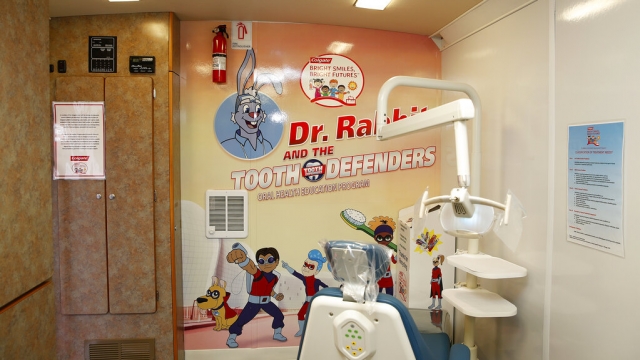Nearly six years after an Arizona toddler died following a visit to the dentist, state regulators are proposing changes in how dentists treat their smallest patients.
Zion Gastelum was 2 years old when he was taken to a Kool Smiles office in Yuma, Arizona, to treat multiple severe cavities in December 2017.
"He would give the most amazing hugs," his mother, Veronica Gastelumm, told Scripps News Phoenix in a 2019 interview. "He would just squeeze you, and then you would squeeze him. When he was done, he'd be like, 'done.'"
While recovering from anesthesia, Zion became unresponsive, according to an investigation by the Arizona State Board of Dental Examiners. He was rushed to the emergency room and hospitalized but died four days later.
The board, which licenses and regulates dentists, found five "deviations from the standard of care" on the part of the dental anesthesiologist. Both he and the dentist who performed the dental treatment kept their dental licenses but had to take continuing education, according to dental board records.
Kool Smiles and the dentists involved in Zion's care did not respond to calls seeking comment from Scripps News Phoenix.
Zion was not the only child to have a medical emergency after receiving anesthesia at the dentist. The Arizona dental board told Scripps News Phoenix one other child under age 8 has died since 2013. Four other children were taken to the emergency room but survived.
The deaths prompted the Arizona dental board to review the dental rules related to anesthesia and sedation. In Arizona, licensed dentists need a permit from Arizona's dental board to administer anesthesia and sedation.
SEE MORE: Scripps News uncovers preventable mistakes in child fentanyl overdoses
If the rule changes currently being considered are put in place, dentists who already have a permit in anesthesiology would have to:
- Apply and get an endorsement, known as a pediatric endorsement, to give anesthesia or sedation to anyone under age 8.
- Be evaluated every two years.
- Have to administer anesthesia to at least 20 pediatric patients within those two years.
The board faces a legislative deadline to act.
Earlier this spring, Arizona State Sen. Janae Shamp, (R) Surprise, sponsored Senate Bill 1602 which set deadlines for the dental board to act.
Shamp, an operating room nurse, said she was concerned while reading a 2022 state audit of the dental board and learning that people had died after dental visits.
"No one should die in a dental office, period," she said during a hearing on the bill in February.
She was also concerned that the dental board's Anesthesia and Sedation Committee had spent three years discussing possible changes, but there had been no rule changes.
In a statement, the dental board told ABC15 there are "layers the board has to go through in order to amend its rules." The board said the review of rules was slowed by the "COVID-19 shutdown" that happened in March 2020, shortly after the committee started meeting.
The Anesthesia and Sedation Committee on Wednesday voted to recommend draft rules to the dental board, thus meeting its September 1 deadline under the law.
The dental board was scheduled to discuss and vote on the proposed rules at its meeting on Friday. However, Board President Anthony Herro said he expected a lengthy discussion and would instead schedule a special meeting within 60 days.
Some believe the proposed rules don't go far enough.
Attorney Scott Eldridge, who represented Zion's family and has been involved in other dental malpractice cases, said he can't speak about any specific case. But in general, he said there is nothing that would automatically suspend a dentist's anesthesia permit if a patient dies. That means a dentist could continue to administer anesthesia to patients while being investigated by the board.
"It's absolutely appropriate to have an interim suspension, absolutely appropriate, because the outcome is so tragic," Eldridge said. "We're not dealing with minor issues."
The dental board told Scripps News Phoenix dentists facing investigations must be given due process and, in some instances, the board has negotiated voluntary suspensions of their anesthesia permits while investigations are underway.
Dr. Helen Lee, a pediatric anesthesiologist at the University of Illinois Chicago, has researched pediatric deaths based on media reports. She found children ages two through five are at the most risk.
"Children are not small adults. They are anatomically different and physiologically different than adults," she said.
Children don't tolerate low oxygen levels as well as adults.
Dr. Lee said there is no national tracking system for dental patients who require emergency medical treatment after anesthesia or sedation.
"That's the problem," she said. "We don't have any rates."
This story was originally published by Anne Ryman at Scripps News Phoenix.
Trending stories at Scrippsnews.com



